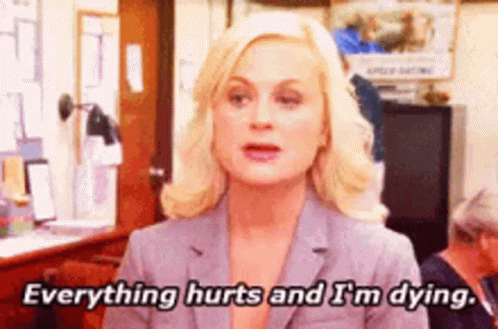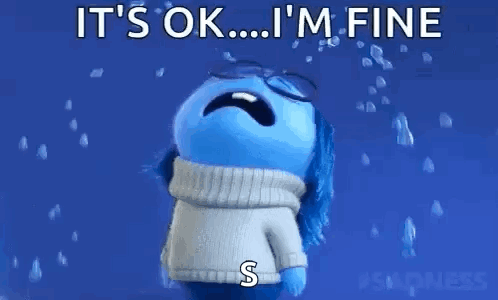I’ve dealt with back pain for over 20 years.
It started back in high school—warming up for a soccer match, everything felt fine… and then *SNAP*, my back seized up. I had no idea what had happened. All I knew was: it hurt, I could barely move, and I was scared.

That moment started a lifelong journey of learning about fitness, mobility, injury prevention—and also, learning how to cope when you realize that not everything is within your control.
I learned how to train better. I ate a nutritious diet. I prioritized sleep and regularly kept up with the corrective exercises prescribed by my doctors and physical therapists. But even though I was doing “everything right” – every 6–24 months, I’d get hit with a serious back flare-up. Sometimes it would last for a couple of days. Sometimes, I would wrestle with it for YEARS.
The last one was the worst.
I spent months twisted in a literal C-shape. I couldn’t stand up straight. I couldn’t move like I wanted to. And more than the physical pain, it was the mental spiral that got me.
“Am I going to be stuck like this?”
“How long will it take this time?”
“Who even am I if I can’t move or teach or coach like I used to?”


It messed with my identity in a way I wasn’t even fully aware of in the beginning.
I’m the trainer. The coach. The guy who teaches others how to move well. I’m the dad who wrestles on the floor with his kids. Who takes care of the physical labor around our home.
Now I was working from bed and questioning if I’d ever feel “normal” again.
Eventually, I did get out of pain again (not everyone does). And it taught me some valuable lessons.
What I’ve learned:
✅ Playing the hand you’re dealt.
Turns out I have congenital spinal stenosis (a narrowing of the spinal canal). I didn’t cause it. I can’t “fix” it. But I can build a plan around it. Physical therapy and strength training are a lot alike! In it’s simplest form, it’s all a version of “exposure therapy.” Stress your body just enough, and in the right ways, to get the response you want. Not too much, not too little.
Over time, I’ve learned the movements that are more likely to cause a flare-up. And I can organize my training to build a bigger “buffer” of strength and mobility in that area.
It’s not what I would have chosen for myself. But it’s the best way I know how to respond.
✅ Recovery is mental as much as it is physical.
Don’t discount the mental and emotional toll that an injury takes on you or a loved one. You can do all the “right things” and still feel like you’re not making progress if your brain is flooded with pain, fear, frustration, or shame. You may not even recognize the impact it’s having on you! I often felt like I was handling everything great. But my loved ones could see the toll the mental stress (let alone the physical pain) was taking on me.
I learned this phrase from a mentor of mine, and it still resonates with me to this day. “Start where you are. Do what you can. Use what you have.” It’s way easier said than done, but falling back on this mindset helped me in some of my darkest moments.
✅ Movement is still worth fighting for.
Even when it takes months. Even when it’s slower than I’d like. Even if exercise doesn’t look the same as it did before. It’s still worth working towards.
The mental and physical benefits of movement, in any form I can do it, are too powerful to ignore.
✅ The same solution doesn’t work every time.
This was one of the hardest ones to learn. There was no “one size fits all” solution to my pain.
- Sometimes heat helped. Sometimes it didn’t.
- Sometimes an exercise would feel GREAT. Sometimes, it would feel AWFUL.
- Sometimes, anti-inflammatory oral steroids helped. Sometimes they didn’t.
This made me learn to approach each new flare-up like an experiment. To take each DAY as a small test of what I could do. And this is the same approach we’ve learned to take with our own clients – even those not dealing with an injury or chronic condition. What worked for them in the past can give us clues, but it might not be the best current solution for what they need.
More than anything, this made me a better coach.
I understand now—really understand—how people with chronic pain or injuries feel.
The fear, the doubt, the grief of losing part of what makes you you.
That perspective made me more empathetic, more flexible, and more helpful–and it’s something I’ve tried to pass on to our entire coaching staff here at Nerd Fitness.
If you’re dealing with pain, setbacks, or feel like your body’s betrayed you lately, I see you.
It might take longer than you’d like.
It might look different than it used to.
But you can still build strength, confidence, and momentum even now.
And if you ever need help figuring out how to do that in a way that fits your body, your history, and your reality? I’d love to help.
Just shoot me a message.
– Coach Matt
